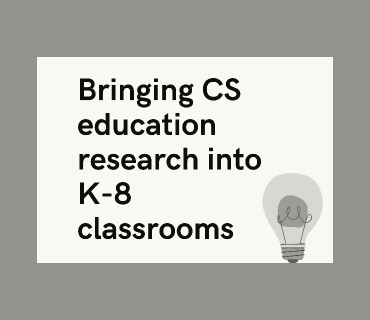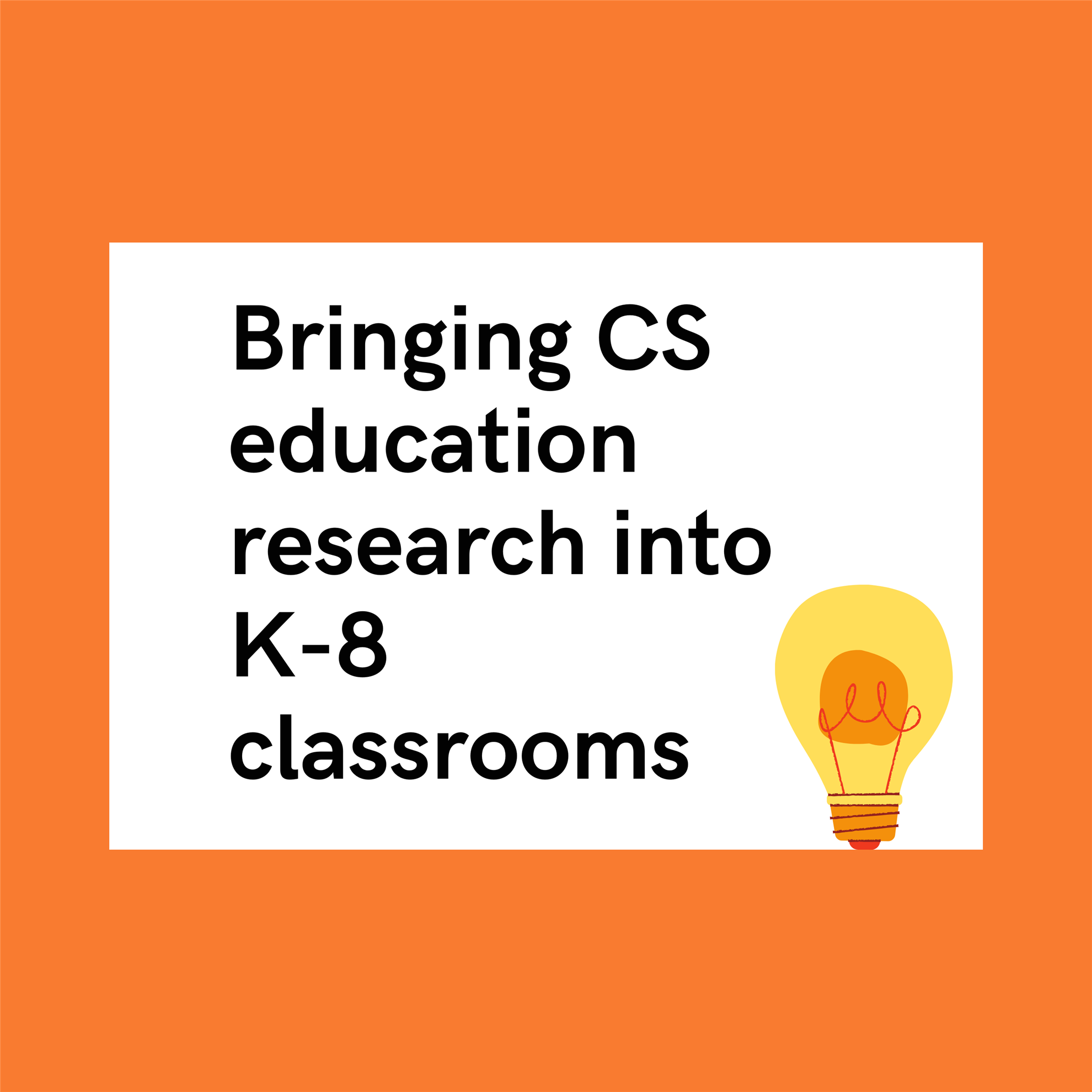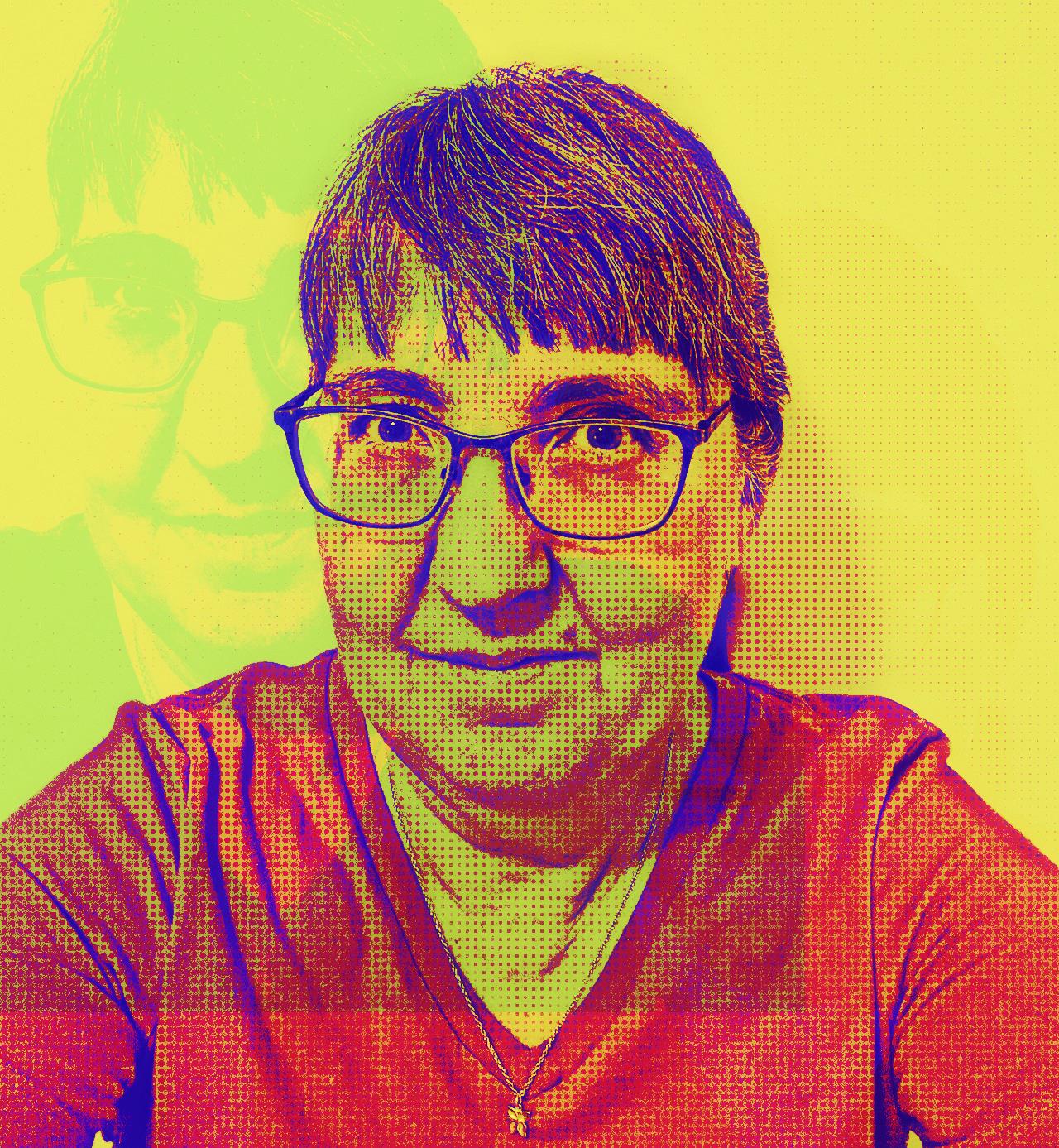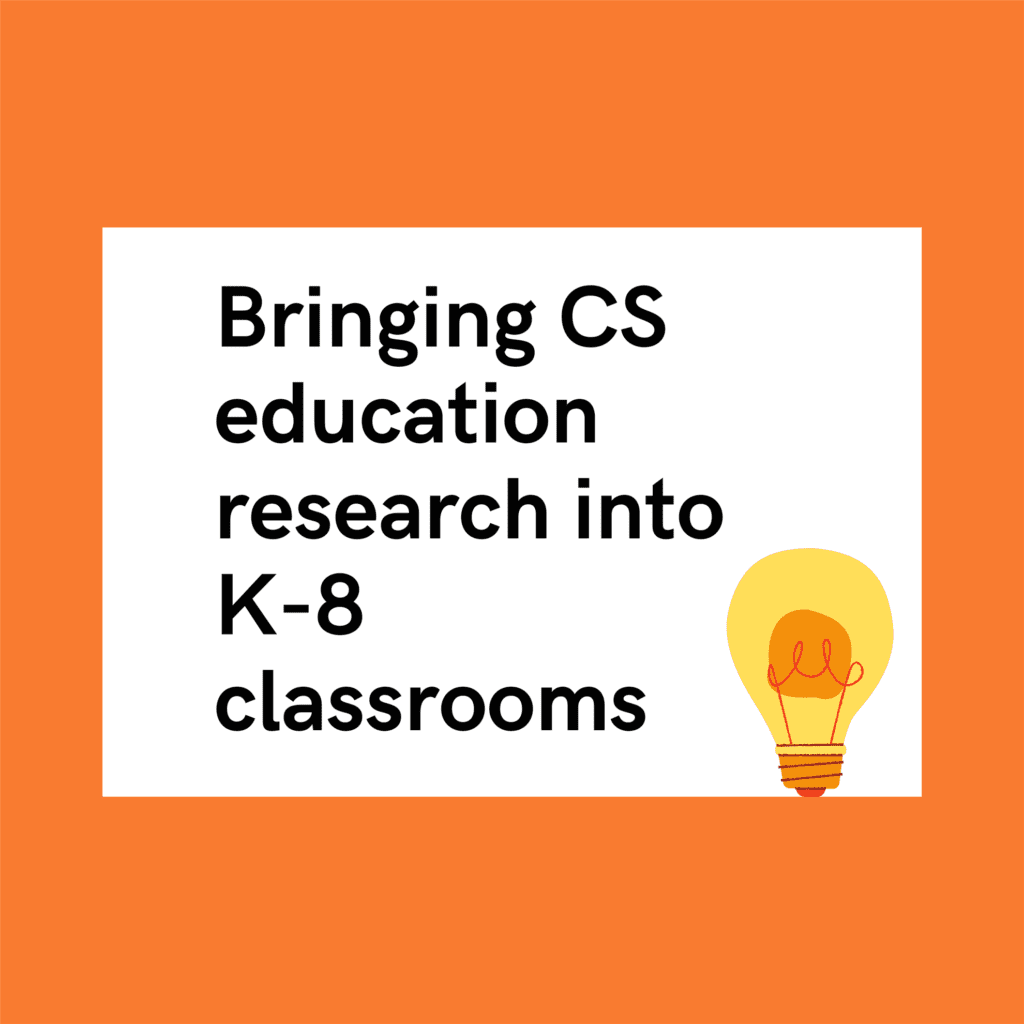
As a K-8 CS coordinator, I was always curious about what research was happening in CS education and how it might help me improve my practice, but there were several barriers, including time, access, and accessibility.
Full Story
 As a K-8 CS coordinator, I was always curious about what research was happening in CS education and how it might help me improve my practice, but there were several barriers, including time, access, and accessibility. Overcoming these issues was a big part of my decision to start a doctoral program in the School of Education at the University of Virginia (UVA). As a full-time student, my time became all about reviewing the research, and being associated with UVA, gave me all the access I needed, but one thing I learned pretty quickly is that the language of research is quite different from the language of education. When I first started reading the research papers, I found it a little intimidating because I did not understand all the terminology or the research process.
As a K-8 CS coordinator, I was always curious about what research was happening in CS education and how it might help me improve my practice, but there were several barriers, including time, access, and accessibility. Overcoming these issues was a big part of my decision to start a doctoral program in the School of Education at the University of Virginia (UVA). As a full-time student, my time became all about reviewing the research, and being associated with UVA, gave me all the access I needed, but one thing I learned pretty quickly is that the language of research is quite different from the language of education. When I first started reading the research papers, I found it a little intimidating because I did not understand all the terminology or the research process.At the start of this semester, I had the opportunity to do an independent study and basically design my own learning experience. I thought it would be awesome to be able to talk with researchers whose papers I was citing for my work at school to learn firsthand about their motivations for doing the research and what they hoped K-8 educators and other researchers would take away from it. I started the Once Upon a Tech podcast with my friend and colleague Sarah FitzHenry right before the pandemic hit and it became a lifeline for both of us. We were pleasantly surprised that so many amazing folks were willing to come on as guests to share their knowledge and experiences at the intersection of technology and literacy. So for my independent study, I decided to invite paper authors to join me on the Bringing CS Education Research into K-8 Classrooms podcast to unpack their research and share their big takeaways for researchers and K-8 educators.
The experience was awesome because not only did I get to take a deeper dive into K-8 CS education research, but I also got to talk with some of the researchers who I have been following and been inspired by on my CS education journey! I am grateful for their generosity and excited to share their insights with other educators. Here are some highlights from the podcast:
-
Episode 1: Anatomy of a research paper with Jennie Chiu
Research papers have a unique language and formatting, which can seem foreign to the uninitiated. In this episode, I asked Jennie, Associate Professor in the School of Education at the University of Virginia, to help break down the elements of a research paper and where educators can find the “good” stuff. -
Episode 2: Continuous CS professional development with Jared O’Leary
Jared is the Director of Education and Research at BootUp, a non-profit that provides professional development (PD) to K-8 educators, and the #CSK8 podcast host. In this episode, Jared highlighted the importance of interest-driven learning and a focus on students creating stuff as a way to introduce CS. -
Episode 3: Supporting diverse learners in K-8 computational thinking with Jean Salac
At the time of recording, Jean was a CS PhD candidate at the University of Chicago’s CANON Lab. She is now a postdoctoral researcher at the iSchool at the University of Washington. In this episode, Jean introduced me to TIPP&SEE which expands on the Use -> Modify step of the Use -> Modify -> Create strategy often used in CS. Mechanisms from TIPP&SEE come from strategies used in teaching reading comprehension. This episode inspired me to incorporate TIPP&SEE into one of the Scratch projects I share with educators during professional learning experiences. -
Episode 4: Elementary and middle school as a path to future CS with Michelle Friend
Michelle is an Assistant Professor of Teacher Education at the University of Nebraska Omaha as well as a CSTA founding and current board member. In this episode, she shared the importance of capturing students’ interest in CS in middle school and that she’d like to see more researchers and educators get involved with research-practice partnerships (RPPs). -
Episode 5: From researcher to edtech entrepreneur with Tom Lauwers
Tom is the founder and CEO of Birdbrain Technologies and in this episode, we explore the research that became the first steps on his entrepreneurship journey to create the Hummingbird Robotics Kit and the Finch Robot. -
Episode 6: Equitable CS teaching strategies with Luther Tychonievich
Luther is an Associate Professor of CS at the University of Virginia and in this episode, we explore equitable CS teaching strategies. He emphasizes that while these strategies do require some short-term effort, they actually make things easier long-term because your students will be happier and more engaged. I recently shared these strategies at the VSTE conference. -
Episode 7: Formative Assessment in K-8 CS with Shuchi Grover
Shuchi is a learning scientist and computer science and STEM education researcher. In this episode, we explore how formative assessment is important in CS education to help identify student misconceptions, give feedback to students on their learning, and inform curriculum design.
I believe that this podcast series can help build the bridge between research and practice. I hope that no matter what subject you teach or what your current comfort level is with CS, you too will be inspired to take the next steps on your CS education journey. I had so much fun and learned so much that I plan to start recording Season 2 in January 2022!
About the Author
 Kim Wilkens is an Ed.D. student at the University of Virginia School of Education and Human Development. In 2012, I founded Tech-Girls, a grassroots, non-profit with a mission to empower girls to imagine and achieve their future dreams in our tech-savvy world. I am passionate about helping K-12 educators from all disciplines learn about computer science and find ways to incorporate it into their teaching.
Kim Wilkens is an Ed.D. student at the University of Virginia School of Education and Human Development. In 2012, I founded Tech-Girls, a grassroots, non-profit with a mission to empower girls to imagine and achieve their future dreams in our tech-savvy world. I am passionate about helping K-12 educators from all disciplines learn about computer science and find ways to incorporate it into their teaching. 
